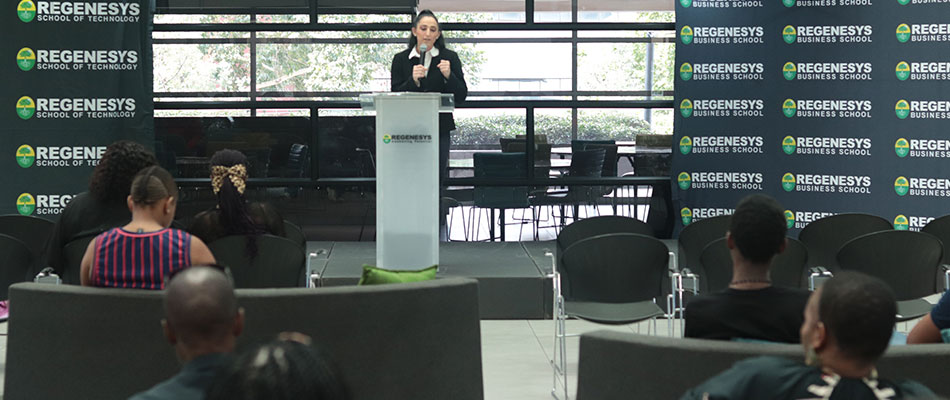An undergraduate degree is the first step in university education, where students gain the knowledge and skills needed for their chosen careers. It lays the foundation for both further studies and job opportunities, helping students prepare for the working world.
Earning an undergraduate degree is an important milestone in South Africa for those who want to build a strong academic and professional base. It equips students with critical thinking and problem-solving skills that are highly valued in the job market.
In this article, we will answer the question, ‘What is an undergraduate?’ by exploring its specifics. We will also discuss the various types of degrees available in South Africa, their benefits, and the career opportunities they open up.
Table of Contents
- What is an Undergraduate Degree?
- Types of Undergraduate Degrees in South Africa
- Benefits of Pursuing an Undergraduate Degree
- Where to Study Undergraduate Degrees in South Africa?
- Funding Options for Undergraduate Degrees
- Undergraduate Life and Experience in South Africa
- Career Opportunities After an Undergraduate Degree
- Conclusion
- What Is Undergraduate Education? FAQs
What is an Undergraduate Degree?
If you are wondering, ‘What is an undergraduate qualification?’, you must know that it is the first level of university education that students typically start after completing matric. It gives students a broad understanding of a subject while allowing them to focus on specific areas as they move through the course. In South Africa, there are different types of undergraduate degrees, which vary in structure and duration.
Moreover, these degrees fall under different levels of the National Qualifications Framework (NQF), which outlines the stages of your education. Here’s a breakdown of the NQF levels in South Africa for undergraduate degrees:
- NQF Level 5: Higher Certificate
- NQF Level 6: National Diploma or Advanced Certificate
- NQF Level 7: Bachelor’s Degree, Advanced Diploma, or Postgraduate Certificate
Understanding these NQF levels helps students choose the right type of qualification for their career goals and further studies.
Types of Undergraduate Degrees in South Africa
In South Africa, undergraduate education offers a variety of degree options that align with different career paths and academic interests. So, whether you are aiming for a general degree or a more specialised qualification, you can pursue several types of undergraduate degrees. So, while you learn the answer to ‘What is undergraduate education?’, you must understand the types of degrees available. They are as follows:
1. Bachelor’s Degrees:
- Duration: 3-4 years
- Admission Requirements: Here are the entry requirements you must meet to get admission to a bachelor’s degree:
- Matric with a Bachelor’s pass (or)
- An equivalent qualification at NQF Level 4 (or)
- A relevant qualification at NQF Level 5 from an accredited institution
- Specific subject requirements relevant to the chosen field of study
Bachelor’s degrees provide a strong academic foundation in a chosen field of study. They are widely recognised and offer opportunities for further education, such as Honours or Master’s degrees.
Learn How to Get a Bachelor’s Degree in South Africa
2. Higher Certificate
- Duration: 1 year
- Admission Requirements: The following are the entry requirements one must meet for Higher Certificate programmes:
- Matric with certificate or diploma pass
- Specific subject requirements relevant to the chosen field of study
The Higher Certificate is a short, professional qualification that helps students gain basic skills in a specific area. It is often considered a stepping stone to further studies or entry-level positions.
Understand the Difference Between Higher Certificate Diploma and Bachelor’s Degree
3. Diplomas
- Duration: 3 years
- Admission Requirements: Below, you will see the admission requirements for Diplomas in South Africa:
- National Senior Certificate (NSC)
- Specific subject requirements relevant to the chosen field of study
Diplomas are more practical and career-focused, equipping students with industry-relevant skills. Students with a National Diploma can sometimes complete an additional year of study to earn a Bachelor’s degree.
South African undergraduate degrees cover various fields, allowing students to pursue their interests and align their studies with their career goals. Some fields include Business, Engineering, Health Sciences, Humanities, Law, and more.
Benefits of Pursuing an Undergraduate Degree
While you learn the answer to ‘What does undergraduate study mean?’, you must know that getting this degree can be a stepping stone towards a successful career and personal growth. It opens doors to various opportunities, enhances earning potential, and equips students with essential skills to excel in the competitive job market.
Here are some of the key benefits of pursuing an undergraduate degree:
- Improved Job Opportunities: Many employers seek candidates with higher education credentials, making a degree crucial for accessing specialised job roles in a competitive job market.
- Personal Interests and Academic Growth: Pursuing an undergraduate degree allows you to explore subjects that interest you more deeply. This academic journey helps you develop expertise in your field and encourages personal fulfilment as you explore your passions.
- Building Professional Networks: Studying for an undergraduate degree allows you to connect with fellow students, faculty members, and industry professionals. These connections can be crucial in securing internships, job placements, and mentorship opportunities in your field.
Where to Study Undergraduate Degrees in South Africa?
Choosing the right institution for your undergraduate studies is important for your academic and professional journey. So, as you learn the answer to the question, ‘What is undergraduate?’, you should know that South Africa offers various options, from public universities to private colleges and online platforms. Let us take a look at where you can study for an undergraduate degree in South Africa:
- Public universities: Public universities are the primary institutions for higher education in South Africa. They offer various undergraduate programmes across various fields, providing a robust academic environment and opportunities for personal development.
- Private institutions and colleges: Private institutions, such as Regenesys, focus on specialised undergraduate programmes. These schools provide more personalised attention and tailored support to help students succeed in their chosen careers.
- Online and distance learning options: Online and distance learning options offer flexibility for students who cannot attend traditional classes. Many institutions provide online programmes that allow you to study at your own pace while managing other commitments.
Funding Options for Undergraduate Degrees
Pursuing an undergraduate degree is an important step towards a successful future, often requiring financial planning and support. Therefore, while you learn what an undergraduate is, you must know how to pay for your studies. Hence, here, we will look at different funding options that can help you afford your undergraduate degree:
- NSFAS Funding: The National Student Financial Aid Scheme (NSFAS) provides financial assistance to eligible South African students from low-income households.
- Scholarships, Bursaries, and Loans: Many universities and private organisations offer scholarships and bursaries based on academic merit, financial need, or specific fields of study.
- Part-time Jobs and Work-Study Programmes: Many students opt for part-time employment or work-study programmes to support their education costs. These options allow students to gain work experience while earning money to cover expenses.
Undergraduate Life and Experience in South Africa
An undergraduate degree in South Africa is more than just studying. In other words, it involves a rich and fulfilling experience that helps shape your personal and professional growth. This journey allows students to engage in various activities, develop new skills, and build lasting relationships. Here is a closer look at what is undergraduate life in South Africa:
- Balancing Academic and Social Life: Students learn to manage their time effectively, balancing coursework with social activities. This skill helps maintain focus while enjoying university life.
- Campus Culture and Student Organisations: Universities offer vibrant campus cultures with numerous student clubs and organisations. These groups provide opportunities to engage in sports, arts, and community service, enhancing the overall university experience.
- Networking with Peers and Professionals: University life allows students to connect with fellow classmates, professors, and industry experts. Building these relationships can open doors to internships and job opportunities, creating a supportive professional network.
Career Opportunities After an Undergraduate Degree
Completing an undergraduate degree opens up various career paths and opportunities. You must know these opportunities as you try to find the answer to ‘What is an undergraduate certificate?’.
So, let us take a look at the options available for the graduates:
- Entering the Job Market Directly After Graduation: Many graduates opt to start their careers immediately. This is because an undergraduate degree provides the foundational skills and knowledge to pursue entry-level positions in various industries.
- Pursuing Further Education: Graduates may continue their studies by enroling in Honours programmes, Postgraduate Diplomas, or Master’s Degrees. This further education can deepen their expertise and improve their job prospects.
- Specialised Career Paths Depending on Your Field of Study: An undergraduate degree allows graduates to specialise in their chosen fields, leading to targeted career opportunities. Depending on their major, students can pursue roles in business, healthcare, engineering, and more.
Conclusion
An undergraduate degree is crucial to achieving academic and professional success. Understanding what an undergraduate is highlights the importance of these qualifications in South Africa’s evolving job market. This degree provides essential knowledge and skills and opens up various career opportunities and personal development experiences. So, whether you enter the workforce directly, pursue further studies, or specialise in your field, an undergraduate degree lays the foundation for your future. However, select the right institution and explore available funding options to increase your educational experience.
With Regenesys, you will find undergraduate programmes that equip you with essential skills and knowledge to excel in your chosen field. Enrol now and start your journey towards success today!
What Is Undergraduate Education? FAQs
What does undergraduate mean?
The term “undergraduate” refers to students who are pursuing their first degree at a university or college, often encompassing Bachelor’s degrees, Higher Certificates, and Diplomas.
What is after undergraduate studies?
After completing an undergraduate degree, students may choose to enter the job market directly, pursue further education such as Honours or Master’s degrees, or specialise in their field of study to enhance career prospects.
What is an undergraduate application?
An undergraduate application is the process through which prospective students submit their credentials, including academic records and personal statements, to gain admission to an undergraduate programme at a university or college.
What is an undergraduate student?
An undergraduate student is someone enrolled in a university programme working towards their first degree, such as a Bachelor’s degree, Higher Certificate, or Diploma. These students engage in academic studies to build foundational knowledge in their chosen fields.
What are the benefits of pursuing an undergraduate degree?
Pursuing an undergraduate degree enhances job opportunities, fosters personal interests, promotes academic growth, and helps build a professional network, making it a valuable step for career success.






